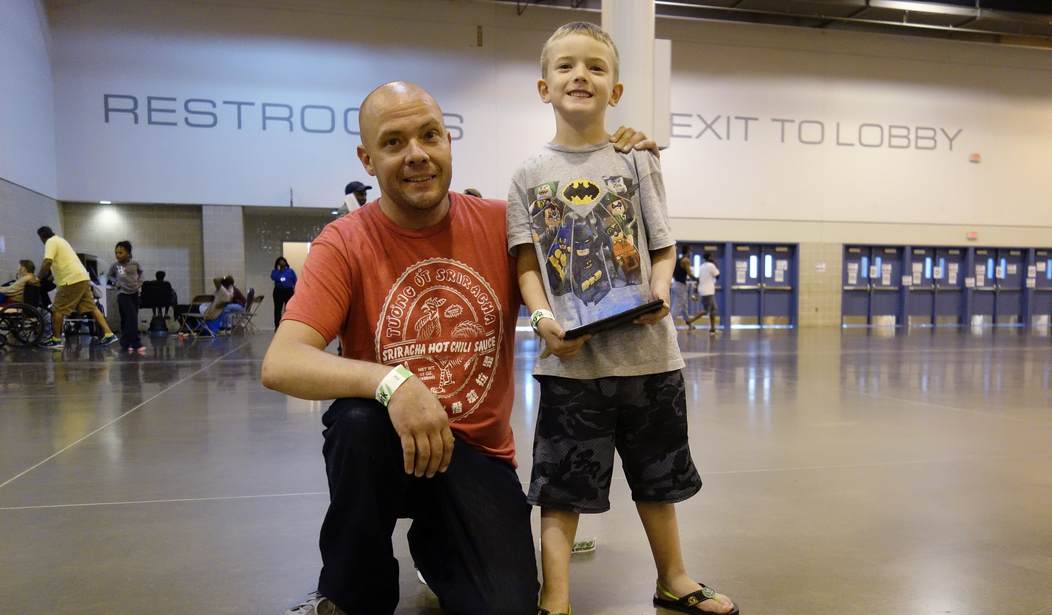The Boy Crisis, by Drs. Warren Farrell and John Gray (BenBella, March, 2018), is not your typical self-help book. The five chapters by Dr. Gray (of Mars/Venus fame) are a well-written, in depth analysis of the four faces of ADHD, its many causes, and both natural solutions and supplements for enhanced brain performance.
The 27 chapters written by Dr. Farrell are eloquently written. Yet they are also rife with fascinating, little-known information that is documented with about a thousand footnotes. Farrell empowers parents with identifying the symptoms of the boy crisis, pinpointing its underlying causes, and offering practical, everyday solutions for families, schools and policy-makers.
For example, did you know that roughhousing contributes to children developing empathy? When I thought about it, this made total sense. It was I at age eight, four years senior to my sister, who thought it was a great idea to launch her from my feet simulating a catapult. Surely this act of roughhousing would have won accolades from my parents if I hadn’t broken her little arm. Dr. Farrell explains the ensuing empathy from a big-brother-Salcedo.
Farrell also explains how dads typically use roughhousing to help children develop “emotional intelligence under fire,” and how that in turn perfects their children’s ability to be assertive without being aggressive.
No sooner did I experience a few of those “Eureka” moments than I realized that Dr. Farrell had merely laid the foundation on which he built a whole new paradigm. In the case of roughhousing, it’s not too hard to see that the father-child excitement creates a father-child bond. But then Farrell helps us see dad’s tendency to use that bond as leverage to enforce boundaries. From there he explains why enforced boundaries are a prerequisite to postponed gratification, and then how postponed gratification is one of best predictors of success.
Recommended
And that’s just one of about seven differences between dad-style and mom-style parenting. Dr. Farrell says parenting magazines don’t address the specifics of a dad’s contributions. The result? Dads don’t know what they do naturally that leads to children with dads benefitting as much as they do. Thus dads can’t say what dads don’t know, and, as Farrell puts it, “moms can’t hear what dads don’t say.” But Farrell does not advocate for dad-style parenting in isolation. He calls for moms and dads to learn “checks-and-balance parenting” in order for children to achieve optimal success.
If anyone ever doubted the importance of the intact family, or the importance of the biological dad—especially to a boy—The Boy Crisis will put that doubt to rest. As Farrell puts it, “The boy crisis resides where fathers do not reside.”
What makes The Boy Crisis so powerful is the depth, range and insight behind his documentation of the more than seventy ways that children—and especially boys—suffer when they are “dad-deprived” vs. “dad-enriched.” For example, dad-deprivation is the strongest single predictor of drug addiction and suicide. And a strong predictor of a boy doing worse in every academic subject, becoming depressed and ashamed of himself, withdrawing from friends, becoming addicted to video games and porn, moving back home with his parents in his thirties, dropping out of high school, being unemployed and eventually being imprisoned.
Quickly being lost in our busy society is the importance of the family dinner. Dr. Farrell does more than confirm the value of family dinner nights; he also gives parents the tools, as he puts it, “to prevent family dinner nights from becoming family dinner nightmares.”
The Boy Crisis makes some fascinating distinctions between heroic intelligence and health intelligence. As Dr. Farrell puts it, “Heroic intelligence is preparation for a short life; health intelligence is preparation for a long life.” His chapter on “How Raising Our Sons Successfully in the Past Differs from Raising Our Sons Successfully for their Future” will help every family strike the balance between training our sons to be heroes and to be healthy.
As mentioned, The Boy Crisis is not your typical self-help book. Once Dr. Farrell explains how “boys who hurt, hurt us,” he gives us concrete calculations as to how “the absence of dad creates the presence of government.” For example, Farrell documents how almost all the mass shootings are done by boys who are dad-deprived; how almost all the ISIS recruits are either dad-deprived boys or girls; how women have thousands of women’s centers, but men’s centers are called prisons—with about 90% of the boys and men being dad-deprived.
Perhaps the most potent part of The Boy Crisis relates to solutions every parent can use. For example, if children with significant father involvement do so much better, how can every family involve dad, and if that’s impossible, solicit other father figures? He helps every mom with a step-dad to navigate the best possible integration of the step-dad. As the son of a divorced family, with a step-dad who typified the Brad Paisley country song about a man who was,“ the dad that he didn't have to be,” this section hit home.

























Join the conversation as a VIP Member